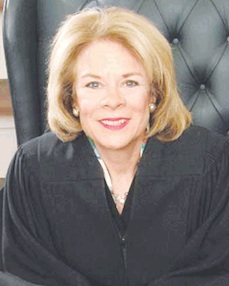By Steven Reynolds
In a world with ubiquitous technology, rising tuition rates, and incessant pressure on students to get a job after graduation, the value of a liberal arts degree has been put under strict scrutiny. But don’t tell that to Judge Barbara Howe of the New York State Surrogate’s Court. Judge Howe, who graduated Phi Beta Kappa from the University of Connecticut, is a firm believer in the liberal arts.
“I’m a sales person for it everyday,” says Howe of a liberal arts degree, which she believes is more essential than ever in today’s complex world. “A liberal arts degree allows you to be a citizen for life who understands his or her world and is able to interpret a complex society filled with conflict. It’s to have the broadest and deepest foundation of ideas, thinking, literature, and knowledge,” says Howe.
Comments like this should come of no surprise to those familiar with the Judge’s background. Howe grew up in Washington, D.C., to very scholarly parents. “Respect for the written word and spoken word were a large part of my everyday life growing up,” says Howe. This influenced Howe’s decision to major in history and sociology at the University of Connecticut, where she was inducted into the University’s Phi Beta Kappa chapter.
“I still remember the [Phi Beta Kappa] induction ceremony vividly. My mother drove many, many hours to come. I immediately put Phi Beta Kappa on my resume, and it’s been on every resume of mine ever since, including my most current one. That’s how much respect I have for the organization. In fact, when my home was burglarized in 1987, one of the first things I did was get a replacement Phi Beta Kappa key,” remarks Howe.
Upon completion of her undergraduate degree, Howe continued her education at Cornell, where she earned her Ph.D. in sociology. In 1974, Howe accepted a position as an associate professor of sociology at the University at Buffalo. Yet just two years following her academic appointment at UB, Howe decided to enroll in the University’s law school. “I’ve never seen it as switching gears,” comments Howe about her decision to get a law degree after pursuing graduate work in the liberal arts.
Howe believes that her liberal arts background has had a profound effect on her career as a judge. “I believe I was elected a judge because people had respect for the integrity of my academic background,” says Howe, who was elected to Buffalo City Court in 1988 despite only recently moving to the city, lacking any political experience, and not having the endorsement of the Democratic organization.
Howe’s liberal arts background continues to influence her judgeship today. “My decisions are informed by the constitution and the laws that I am sworn to uphold, but my sociology and history backgrounds are always with me,” says Howe. This helps her to better understand the situation of the lawyers and non-represented persons who appear before her everyday in court, something that has gained Howe respect within the legal community.
Indeed, it is tolerance that Howe believes is the greatest benefit of a liberal arts degree. “Being exposed to different ideas and cultures leads to one becoming a more open-minded person,” asserts Howe. She still remembers the segregation, ethnocentrism, and racism that afflicted society during her childhood in the 1950s and 1960s. And while we’ve made progress, she is quick to point out that lack of tolerance is still very problematic today. “The liberal arts can help combat that [lack of tolerance],” says Howe. With that in mind, one would be hard pressed to question the importance of a liberal arts education in today’s world.
Steven Reynolds is a junior at Case Western Reserve University majoring in political science and sociology. Case Western Reserve University is home to the Alpha of Ohio Chapter of Phi Beta Kappa.




